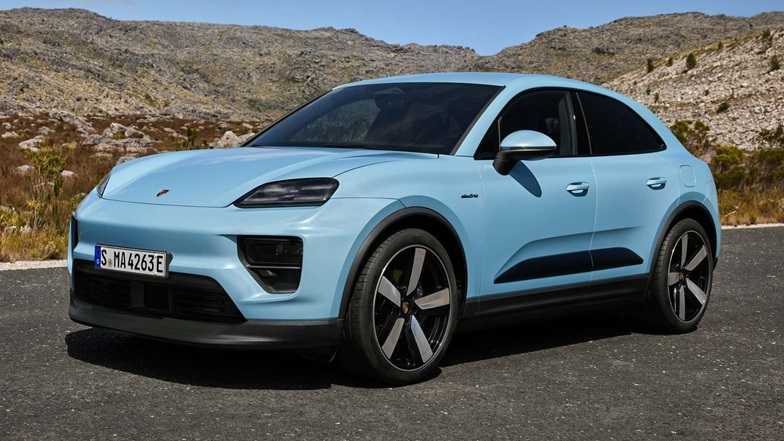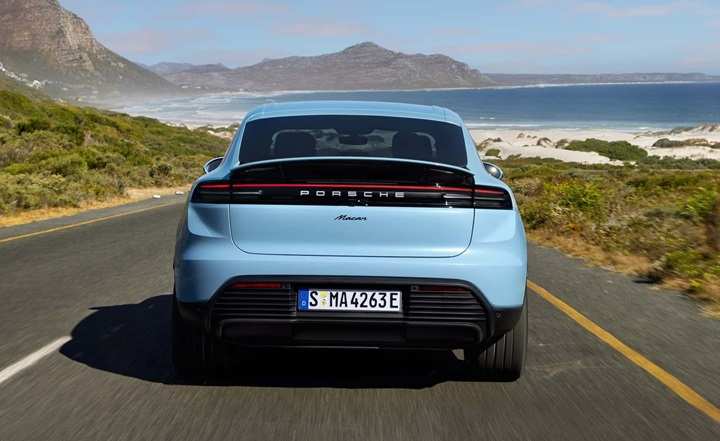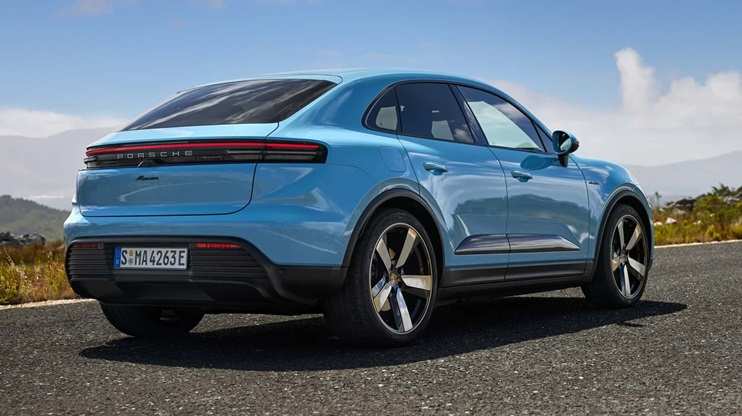Porsche’s EV Transition Hits a Roadblock: Why the Automaker is Rethinking Its Goals
Porsche, known for its iconic sports cars and luxury SUVs, once set an ambitious target: 80% of its sales would come from electric vehicles (EVs) by 2030. However, recent developments suggest the automaker is reconsidering this bold transition. With shifting market dynamics and evolving consumer preferences, Porsche’s EV journey has hit some speed bumps. Here’s what’s happening and why it matters.

The Macan EV Dilemma
Porsche Macan, its best-selling SUV, has been a cornerstone of the brand’s success. When the company announced plans to make the next-generation Macan exclusively electric, it marked a pivotal moment in Porsche’s EV strategy. However, an unnamed insider recently revealed that the automaker is exploring the possibility of a new gas-powered Macan alongside its electric counterpart.
Initially, Porsche planned to keep the original combustion-engine Macan in select markets until 2026 while phasing in the Macan EV. But now, the company is reportedly evaluating a broader range of scenarios, including a second-generation internal combustion engine (ICE) Macan. This shift comes as Porsche remains uncertain about the electric Macan’s long-term market performance.
Price Matters: A Tale of Two SUVs
One major obstacle for the Macan EV is its steep price. The base model starts at $75,300, while the high-performance Turbo version can soar to double that amount. In contrast, Tesla’s Model Y—a slightly smaller, less luxurious rival—offers a significantly lower price point, which has made it a global best-seller.
Although Porsche initially claimed overwhelming demand for the Macan EV, sales figures have yet to reflect such optimism. The high cost appears to be a deterrent, particularly in markets where consumers prioritize value over luxury.

Taycan Troubles: A Warning Sign
Another blow to Porsche’s EV ambitions came from the dramatic decline in Taycan sales. Despite receiving a major upgrade in 2024, the sporty electric sedan saw its global sales drop by 49%. This downturn was especially pronounced in China, the world’s largest EV market, where competition from domestic brands has intensified.
An insider attributed the Taycan’s struggles to evolving market dynamics, stating, “We cannot rely solely on traditional assumptions about consumer behavior.” This sentiment highlights the challenges luxury automakers face as they navigate an increasingly competitive and price-sensitive EV market.
Rethinking the 718 Sports Car
Porsche had also planned to electrify its 718 lineup, including the iconic Boxster and Cayman models. However, delays in battery development have pushed back the timeline for these vehicles, leaving their future uncertain. Reports suggest Porsche is even considering retaining combustion engines in the new 718 lineup, a surprising move given its earlier commitment to electrification.
While Porsche explores its EV options, hybrids and plug-in hybrids are gaining traction as a compromise. These vehicles offer a mix of electric and gas-powered capabilities, appealing to consumers who aren’t ready to fully embrace EVs. In 2024, nearly 30% of Porsche’s global sales were hybrid or electric, with half of those being fully electric. This trend underscores the growing demand for transitional technologies as buyers weigh the pros and cons of going all-electric.
China plays a critical role in shaping Porsche’s strategy. As the world’s largest car market, it accounted for a significant portion of global EV sales in 2024. However, Porsche’s sales in China fell by 28% last year, partly due to the rise of competitive, high-quality EVs from local brands. This shift away from foreign luxury brands, even prestigious names like Porsche, has forced the automaker to reevaluate its approach.

The Bigger Picture: A Trend Across the Industry
Porsche’s hesitancy to fully commit to EVs mirrors a broader trend among automakers. Many companies are scaling back their EV ambitions, opting instead to focus on hybrids and plug-in hybrids. These vehicles, once considered transitional, are now viewed as a vital part of the market, offering a bridge for consumers hesitant to switch to fully electric cars.
Porsche’s Chief Financial Officer, Lutz Meschke, recently acknowledged that the company is rethinking its electrification timeline. “We are committed to the combustion engine for much longer,” he said, hinting at a more cautious approach to phasing out traditional vehicles.
This pragmatic shift isn’t just about maintaining customer loyalty—it’s also about safeguarding Porsche’s financial stability. By diversifying its offerings and adapting to market conditions, the automaker aims to strike a balance between innovation and profitability.
Key Takeaways for Porsche Fans
- Flexibility is Key: Porsche is exploring a mix of EVs, hybrids, and ICE vehicles to meet diverse consumer demands.
- Price Sensitivity Matters: The high cost of EVs like the Macan and Taycan highlights the need for more affordable options.
- China’s Influence: As a major market, China’s shift toward local brands is reshaping Porsche’s strategy.
- Hybrids as a Bridge: Transitional technologies are gaining traction as consumers adapt to the EV era.
Porsche’s journey toward electrification is far from over, but it’s clear that the road ahead won’t be as straightforward as initially envisioned. By adopting a more flexible strategy, the automaker is positioning itself to navigate the complexities of a rapidly evolving market. For now, fans of the brand can expect a blend of cutting-edge electric models and beloved gas-powered classics, ensuring that Porsche remains a driving force in the automotive world.
Related Post
